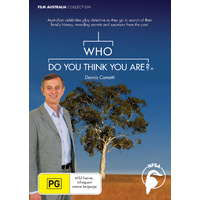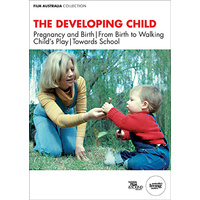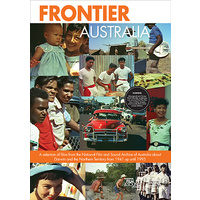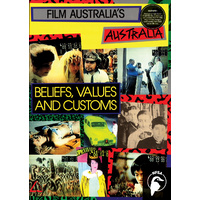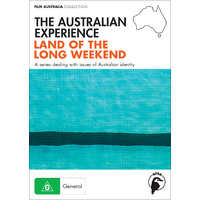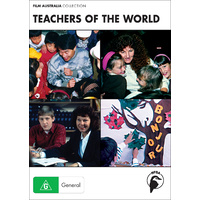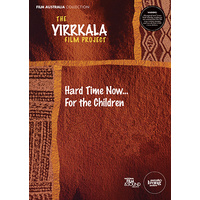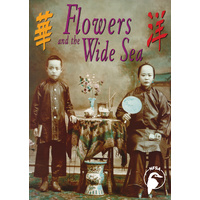1985, 8 x 12 Minutes
A series of eight documentaries examining the history of migration to Australia. The first part provides an historical perspective of immigration since 1788. The second part deals with specific issues of migration such as the White Australia policy; the factory work made available to post-war migrants and its effect on them; growing up in two cultures and its impact on identity; and Australian attitudes to "foreigners".
Gaol to Gentry 1788-1840s Overcrowded gaols in Britain required a solution and New South Wales was decided upon. The first fleet of convicts and soldiers struggled for survival. A penal colony where no-one wants to go is transformed by the wool industry into a mecca for British free settlers. The pastoral industry encroaches on Indigenous society with disastrous consequences. A new aristocracy emerges but the economic slump of the 1840s slows migration. Migrants become scapegoats for troubled times.
Golden Land, The – 1840s-1900 Irish immigrants, escaping the great potato famine, provide a labour force for a resurgent economy. The 1850s gold rush creates a boom and starts large diverse migration, which leads to the establishment of cities and industry. Chinese are barred entry, Pacific Islanders are imported into Queensland, but unions react against cheap coloured labour and Federation decides that Australia will be white.
Growing Pains – 1901-1945 The unofficial "White Australia policy" keeps out unwanted immigrants. State government immigration programs for a vigorous new Australia are dashed by World War One. Rebuilding programs in the 1920s are stopped by the Great Depression but the experience of World War Two provides extra reasons to expand the population.
Widening Net, The – 1945- After World War Two, a massive migration program starts. People are recruited by the government, initially from Britain then Western Europe and the Mediterranean. This enormous intake of people, including refugees, alters the face of Australia. But from the early 1970s, and with a changing economy, recruitment fluctuates and dies down.
White Australia Policy, The This program examines the history of Australian attitudes to non-European migration, from the first entry restrictions on Chinese in 1855 and the "dictation test" (introduced nationwide at Federation to exclude "undesirable" immigrants) to the acceptance of Indo-Chinese refugees in the 1970s.
Who'll Do the Dirty Work? The arrival of more than three million people since World War Two has provided a vast labour force. Some of these migrants have struck it rich, but many have been the first to suffer in times of recession, from union neglect and exploitation in low-skilled work areas.
“You Keep Juggling…” Migrants speak of their experiences as young people assimilating into Australia. For many, there has been conflict in finding a balance of identity between the values of their parents' home country and Australia.
“Foreigners’" Instances of intolerance in Australia are related by Irish, Chinese, Pacific Islander, English and Turkish migrants. They refer to situations of race, language or cultural differences and of economic pressure.
A co-production of Film Australia and the Australian Institute of Multicultural Affairs. © 2011 National Film and Sound Archive of Australia.
(198391500)
Producer/Director: Les McLaren
Featured People: Clare Dunne, Frank Cusack, Herbert See Poy, Mick Young, Al Grassby, Noel Fatnowna, Reuben Wheeler, Stan Allen, John Zigouras, Carmen Tapiolas, Doris Liffman, Brian Murray, Arthur Calwell, George Kiddle, Fred Daly, Giovanni Sgro, John Schiffer, David Taylor, David Page, Nick Gekas, Dennis O'Hoy, Prof Roger Keesing, Patsy Adam-Smith, Harold McGuiness, Sir Billy Snedden, Sir Hubert Opperman, Don Dunstan, Greg Humphries, Nga To, Rob Manne, John Bluthal, Robert Richter, Despina Taylor, Rosemary Brondolino, Iacomini family, Antoinette Charras, Phillip Adams, Athol Townley, Dinny O'Hearn, Herbert 'Junior' See Poy, Charles 'Spike' Routley, Ethel Hayton, Bruce Ruxton, Tony Trobbiani, Noel Landis, Ethel Marr, Max Scamangas, Sevel Fouad, Turabi Bakir, Dr Egon F Kunz, Steve Duricic, Alan Matheson, Charles D'Aprano, Prof Bill Ford, Maria Posas, Dr Spiro Moraitis, Eric Willmot, Ian Harmstorf
Year: 1985
Running Time: 8 x 12 Minutes
Classification: Exempt from classification
Curriculum Links: Australian History, Intercultural Studies, SOSE. The notes and activities have been designed for junior and middle secondary students. Major themes and concepts include national identity, immigration, racism, economic growth and urban development.
SEE ALSO
| SKU | 198391500 |
| Brand | Film Australia |



